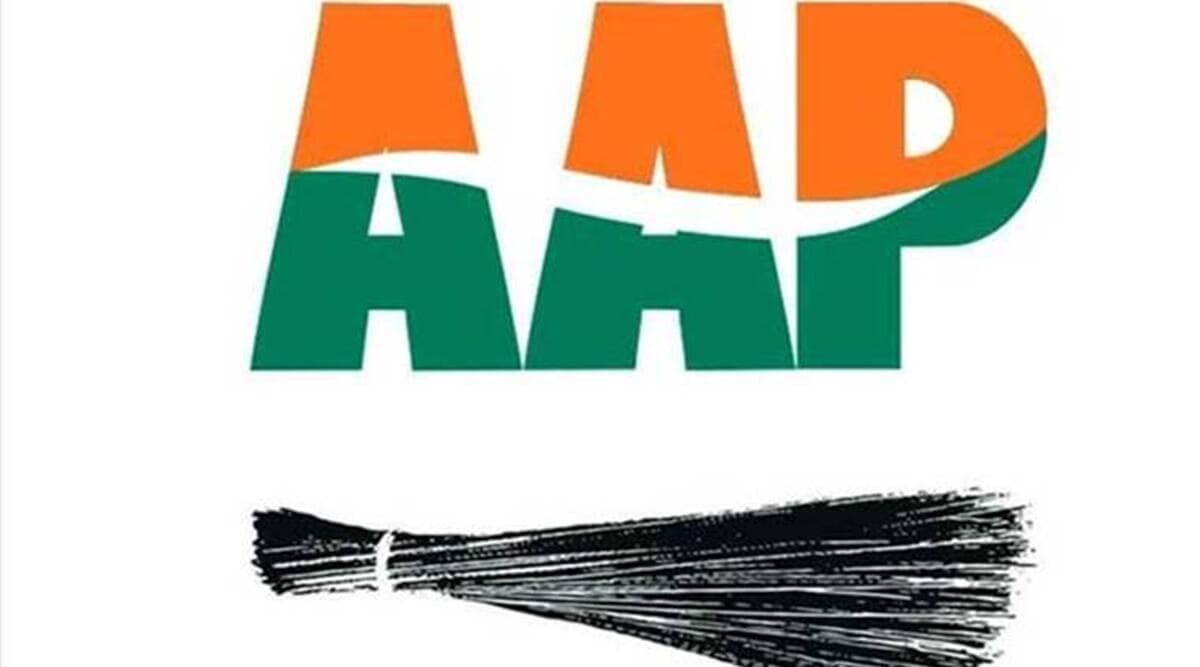 AAP has fielded a total of 1,606 candidates in the civic body elections out of which 319 are contesting the municipal corporation polls while 1075 candidates are in fray for the municipal council seats.
AAP has fielded a total of 1,606 candidates in the civic body elections out of which 319 are contesting the municipal corporation polls while 1075 candidates are in fray for the municipal council seats. The Aam Aadmi Party (AAP), which has failed to make a mark in any election in Punjab after the 2017 Assembly polls, has launched its senior leadership in a hectic campaigning schedule for the civic body elections having sensed an opportunity in the ongoing farmers’ agitation and the anti-BJP sentiment.
The civic body polls, being the first elections to take place in the state after the farmers’ agitation took roots at Delhi borders and following the split of SAD-BJP alliance, the AAP leadership has sensed an opportunity to make a mark.
The Assembly polls are a year away and AAP feels that this is the optimum time to see what kind of response it gets. The AAP leadership is gung ho about its prospects in the civic body polls due to the new dimensions offered by the anti-Akali, anti-BJP sentiment and the anti-incumbency factor of the ruling Congress.
Party insiders say that it is for this reason that Raghav Chadha, the state co-incharge and a close confidant of Delhi Chief Minister and party supremo Arvind Kejriwal, had been despatched to Punjab on a punishing schedule of roadshows in Majha, Malwa and Doaba regions.
Chadha undertook 10 roadshows in the four days he spent in the state. He undertook roadshows in several cities, including ones where BJP has done traditionally well. Among the cities where Chadha did roadshows were Pathankot, Gurdaspur, Batala, Hoshiarpur, Dasua, Dera Bassi, Ropar, Anandpur sahib, Kapurthala and Bathinda.
AAP has fielded a total of 1,606 candidates in the civic body elections out of which 319 are contesting the municipal corporation polls while 1075 candidates are in fray for the municipal council seats. The party is also supporting 212 candidates in the nagar panchayat polls.
Speaking to The Indian Express, Raghav Chadha said these elections have presented a golden opportunity to AAP to strengthen its organisational base and consolidate electoral gains in Punjab.
“AAP has been working extremely hard and has successfully strengthened its base in Majha and Doaba regions — the areas that were previously considered relatively weak for AAP by our adversaries. It’s because of our diligent, dedicated and rigorous hard work at the grassroots whereby we have fortified our organizational base,” he said.
Chadha said a section of political analysts had labelled AAP in Punjab as a party with significant presence in rural areas and relatively lesser appeal in urban areas. “The outcome of these elections will show how AAP has succeeded in building a strong presence in towns and cities,” he said.
Asked about what kind of response his roadshows had generated, Chadha said, “It is clear that the people of Punjab are fed up of the Congress, the BJP and the Akali Dal. They are yearning for change and look at AAP with a lot of hope. I was repeatedly told by people that Captain has run the most ineffective, lazy and “nikkammi” government in the last four years where the entire governance has been outsourced to a bureaucrat and he himself has gone in exile,” he said.
Asserting that people want to get rid of “this hopeless government” he said he had also received feedback on SAD and was told in no uncertain terms by people he met that ‘we hate Akali Dal’.
“And BJP, a party of cities and towns, may actually see a complete washout in these elections. This leaves a big political vacuum which only AAP can fill. The results of the municipal polls will be act as a shot in the arm for AAP in Punjab,” said Chadha.
While it is a fact that the civic body polls are mostly about local issues concerning the municipal issues of the towns, cities and villages, but due to the ongoing farmers’ agitation and the anger against the centre’s agriculture laws, AAP has focussed on these issues.
Apart from Chadha the other senior leaders of the party actively campaigning are state co-incharge Jarnail Singh, state president and Sangrur MP Bhagwant Mann, and almost all MLAs of the party led by Leader of Opposition Harpal Singh Cheema.
Elections to the eight municipal corporations and 109 municipal councils and nagar panchayats in Punjab will be held on February 14 and the counting of votes will take place on February 17.